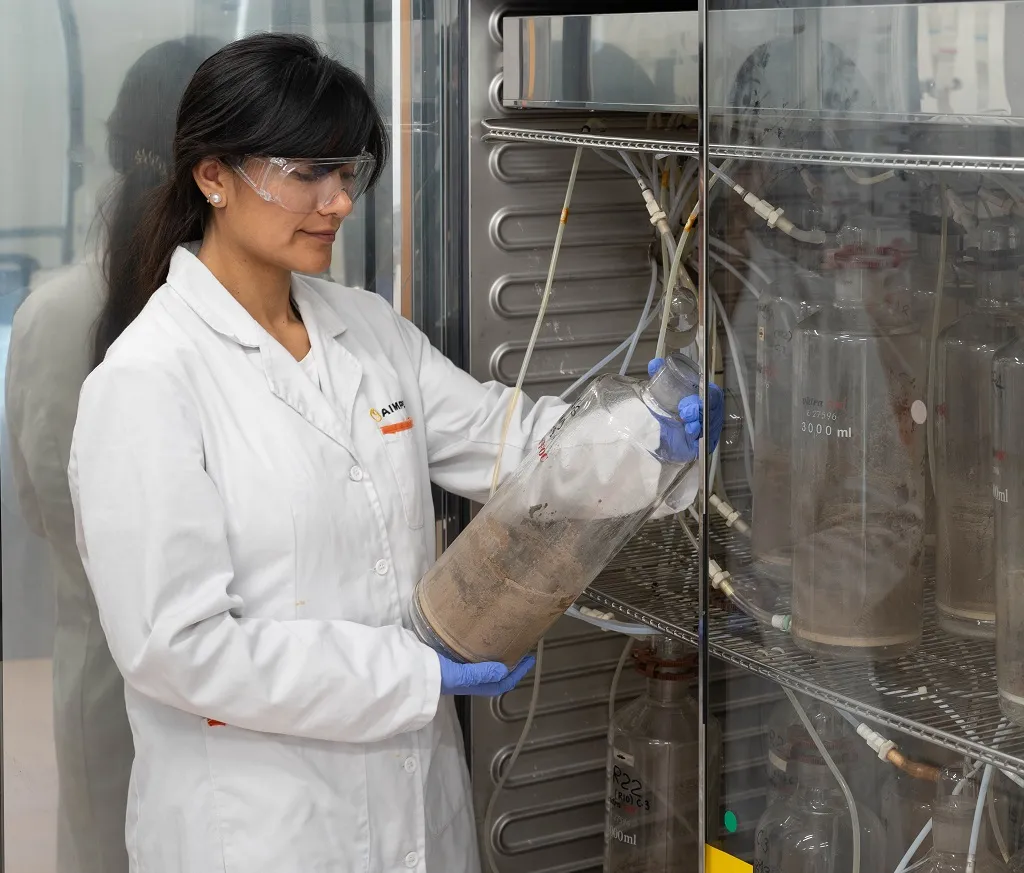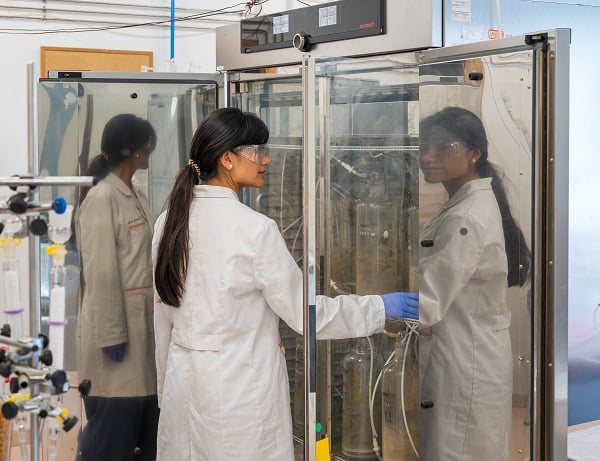
The BIOFAST Project has successfully concluded and achieved its main objective: to reduce the time taken to carry out biodegradation tests on bioplastics in composting environments. This research was coordinated by the Plastics Technology Centre (AIMPLAS) with the participation of the Materials Technology and Sustainability Research Group (MATS) in the Chemical Engineering Department of the ETSE School of Engineering at the Universitat de València, and the company Prime Biopolymers.
With funding from the Valencian Institute of Business Competitiveness and Innovation (IVACE+i) through the Strategic Projects in Cooperation Programme and ERDF, the BIOFAST Project not only demonstrated an effective reduction in the time taken to perform biodegradation tests applied to bioplastics, but also generated significant economic and environmental impact. Speeding up biodegradation studies allows for greater efficiency in the development processes of compostable bioplastics by reducing operating costs and improving the sustainability of new product lines.
“This breakthrough represents an important step towards a circular economy model in which bioplastics can be rapidly broken down and valorized, thus reducing the accumulation of plastic waste and mitigating its environmental impact. The methodological protocol developed could be adopted on a large scale to promote more sustainable and efficient practices in the treatment of compostable bioplastic waste,” said researchers involved in the project.

The project consortium therefore developed and validated an innovative methodological protocol that combines specific bioplastic formulations, various oxidative pretreatment technologies and compost enrichment to speed up the bioplastics biodegradation process.
Specifically, the MATS Research Group applied a series of abiotic pretreatment technologies to biopolymeric materials, including plasma and UV irradiation, as well as hydro- and chemo-thermal degradation. The impact of the oxidative pretreatments was evaluated in terms of the short- and medium-term stability of the materials’ structure, morphology and functional performance.
Meanwhile, Prime Biopolymers successfully prepared several compositions of compostable biopolymeric materials of great impact on the current market. AIMPLAS, the project coordinator, analysed factors that significantly affect the biodegradation process to develop a strategy to speed up the process based on increasing the potential of the biotic and abiotic components involved in composting. The combination of these efforts made it possible to optimize the end-of-life assessment conditions of compostable bioplastics and create a useful tool in the transition of this value chain towards economic circularity.
Source
AIMPLAS Blog, press release, 2024-09-24.
Supplier
AIMPLAS (Asociación de Investigación de Materiales Plásticos y Conexas)
Prime Biopolymers
University Politécnica de Valencia
Share
Renewable Carbon News – Daily Newsletter
Subscribe to our daily email newsletter – the world's leading newsletter on renewable materials and chemicals









